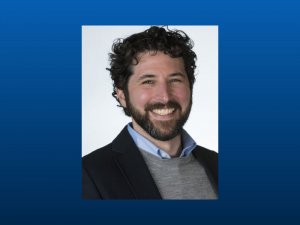Presented By: Department of Psychology
Quantification of Biological Aging
Dan Belsky, Department of Epidemiology & School of Public Health, Columbia University

The Evolution and Human Adaptation Program (EHAP) at the University of Michigan is proud to present our fall 2021 speaker series:
ABSTRACT:
Aging involves progressive accumulation of cellular-level changes that drive loss of resilience and increased vulnerability in tissues and organ systems, leading to disease, disability, and death. The geroscience hypothesis proposes that intervention to slow or reverse accumulation of these changes can delay or prevent chronic disease and extend healthy lifespan. Animal experiments establish proof of concept for geroscience. Now, new methods to quantify the progress and pace of biological aging are opening frontiers for human translation. Quantifications of biological aging have potential to advance understanding of how genes and environments shape health across the lifespan and to guide efforts devise interventions that modify processes of aging with the goal of preventing disease. The talk will review progress in the field, introduce a new method to quantify the pace of biological aging from DNA methylation, DunedinPACE, and present results from the CALERIE randomized controlled trial, which tested effects of 2 years of calorie restriction in healthy, non-obese humans. Preprints related to the talk are available at https://www.medrxiv.org/content/10.1101/2021.08.30.21262858v1; and https://www.medrxiv.org/content/10.1101/2021.09.21.21263912v1)
ABSTRACT:
Aging involves progressive accumulation of cellular-level changes that drive loss of resilience and increased vulnerability in tissues and organ systems, leading to disease, disability, and death. The geroscience hypothesis proposes that intervention to slow or reverse accumulation of these changes can delay or prevent chronic disease and extend healthy lifespan. Animal experiments establish proof of concept for geroscience. Now, new methods to quantify the progress and pace of biological aging are opening frontiers for human translation. Quantifications of biological aging have potential to advance understanding of how genes and environments shape health across the lifespan and to guide efforts devise interventions that modify processes of aging with the goal of preventing disease. The talk will review progress in the field, introduce a new method to quantify the pace of biological aging from DNA methylation, DunedinPACE, and present results from the CALERIE randomized controlled trial, which tested effects of 2 years of calorie restriction in healthy, non-obese humans. Preprints related to the talk are available at https://www.medrxiv.org/content/10.1101/2021.08.30.21262858v1; and https://www.medrxiv.org/content/10.1101/2021.09.21.21263912v1)